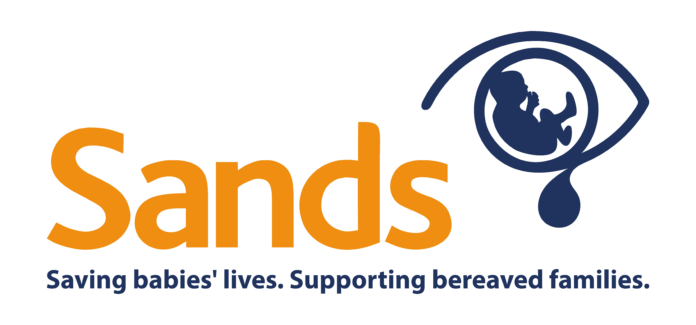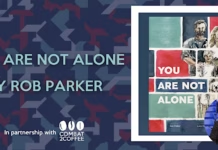#FindingTheWords campaign to help everyone start a conversation with people affected by pregnancy loss or the death of a baby
Most people who know someone affected by pregnancy or baby loss in Wales want advice on how to start conversations sensitively (71%), according to a survey published today (17 June) by the charity Sands, which works to save babies’ lives and support bereaved families.1
Sands has launched its Finding the Words campaign today, at the start of its annual Sands Awareness Week, to help everyone feel more confident to start these important conversations.
A lack of conversation about bereavement matters because of the impact on bereaved parents when no one asks about their loss.
A quarter (25%) of people surveyed in Wales who had been personally affected by pregnancy or baby loss, said they felt like they or their baby didn’t matter when no one asked them about what had happened.
Significantly, those parents who did have the opportunity to talk about their loss said that they felt relieved to be able to talk about what happened (55%), that they and their baby mattered (32%), and that ‘a weight had been lifted off my shoulders’ (31%).
Sands’ Chief Executive Clea Harmer said: “Talking to someone about pregnancy loss or the death of their baby can sometimes feel difficult, and you might be worried about saying the wrong thing. But bereaved parents tell us that when friends, family and colleagues reach out and connect, it lets them know they aren’t alone with their grief. It can be as simple as saying ‘I’m so sorry, would you like to talk about your baby?’
“The good news is that pregnancy and baby loss is no longer a taboo subject in the way it once was. We are now seeing the subject being featured in storylines on TV soap operas. Celebrities and social media influencers are using their platforms to talk about their experiences, and many more bereaved parents feel able to openly share about their losses on social media. This all helps to break the silence. However, we know this is not the same for everyone. There are still barriers to talking about pregnancy and baby loss.
“This is an issue that affects so many in society; half of UK adults have said that they, or someone they know, have experienced at least one form of pregnancy or baby loss.2 What this survey shows is that while bereaved parents often want to talk about their baby, other people – family, friends or work colleagues – aren’t always confident in how to respond. Our Finding the Words campaign will give everyone simple ways to show bereaved people that they care and are there to listen.”
When asked to think about people they knew who had experienced pregnancy or baby loss, the majority of people in Wales said they had felt confident talking to a partner (71%) family (65%) or a friend (65%) about their loss.
However, less than half (41%) said they had been confident talking to a work colleague, and under a third (26%) when this was someone they knew in their local community.
Worryingly, more than one in ten people (17%) said they were not very confident or didn’t have the confidence at all to talk to their own partner about pregnancy loss or the death of their baby.
Ruth and Barry Mason’s sons George and Harry were stillborn in August 2018. She found support through Sands and went on to become a volunteer befriender for Sands and Merthyr Sands, a support group for bereaved parents in the area.
Ruth Mason said: “Facing people that you know and love after experiencing pregnancy or baby loss, is emotional, difficult and often painful. When George and Henry were stillborn, we knew that we would be surrounded by family and friends who loved us and wanted to support us, but we weren’t quite prepared for just how difficult some of them would find it to speak to us about our boys. We totally understood – before going through it ourselves, I’m not sure I would have known the right thing to say.
“Navigating that time was difficult but hopefully, by sharing our experience with others, particularly through Sands’ Finding the Words campaign, we can support people to find the right words and break the silence around pregnancy loss and baby loss. One of the moments that stood out most to me in the weeks following our loss was when a friend and colleague visited me at home. As soon as I opened the door she said “Honestly, I haven’t got a clue what to say and I know nothing will comfort you so I’m just going to let you know how incredibly sad I am for you and am here for whatever you need”.
“It was so refreshing after a lot of “these things aren’t meant to be” and “at least you have one healthy child”. We know people didn’t mean any harm, but those comments didn’t bring us any comfort. If you don’t know what to say, then reach out and ask someone who can help. It could be somebody who has been through it or a Sands volunteer, or the national Sands helpline. Finding the right words could take five minutes but could mean so much to the family who you want to support.”
Hannah Jones and her husband Chris’ identical twin boys Jensen and Logan were stillborn in June 2009.
Hannah Jones said: “Words are powerful and words of acknowledgement around baby loss cannot be underestimated. When we lost our precious twins Jensen and Logan, it meant the world to us when loved ones and friends would ask us questions about our little boys and acknowledge their existence. This provided much comfort at the most difficult and darkest of times.
“It takes bravery to speak about grief and loss, but such conversations can provide great comfort, support through the grieving process and allows parents that have suffered baby loss to openly grieve for their much loved babies and to also most importantly celebrate them.”
Helping people talk about pregnancy or baby loss with those affected
When asked to choose from multiple reasons why they found it hard to start a conversation about someone’s loss, the most common reason people gave was because they were worried about upsetting the person affected (62%).
Other reasons included:
- I simply didn’t know what to say (37%)
- I felt it was too personal (37%)
- It never seemed to be the right moment (17%)
- I was worried that I would get upset (14%)
- I felt that too much time had passed (10%)
Overcoming these barriers is important because regardless of whether anyone asked them or not, the majority of bereaved parents in Wales (72%) said they did want to talk about what had happened.
When asked what would help people feel more confident to start a conversation with someone they know about pregnancy or baby loss the most popular answers were:
- Conversation starters/top tips to help if I’m worried about saying the wrong thing (57%)
- Knowledge about an organisation to sign post them to for support (38%)
- Background information about types of loss and grieving loss (35%)
Through its Finding the Words campaign, Sands is sharing advice and support so more people can start these important conversations.
Impact of pregnancy and baby loss on the workplace
Of those bereaved parents in Wales who responded to the Finding the Words survey, most (78%) said that they had returned to work after their loss, but just under half (46%) said no one talked to them about their pregnancy loss or the death of their baby.
These parents said that this lack of acknowledgement made them feel like they and their baby didn’t matter (29%), or isolated and lonely at work (9%). Just over one in ten people (12%) said they had left their job because no one talked to them about what had happened.
However, when work colleagues did talk to them about their loss this had a positive impact, with most feeling supported and listened to (41%), like they and their baby mattered (24%), and better able to manage their workplace relationships (51%).
Sands is urging all small and medium sized businesses in Wales to take up its offer of free Bereavement in the Workplace training.4 Sands’ training is designed to help managers and colleagues understand pregnancy loss and baby death, find the words to support bereaved staff and navigate relevant employment law.
How to get involved in Finding the Words campaign
Sands is asking everyone in Wales to support its Finding the Words campaign, so more people know about Sands, and how to have those important conversations with people affected by pregnancy and baby loss.
Activities that everyone can get involved with include:
– Sharing #FindingTheWords social media posts.
– Putting up a Finding the Words poster in their local area to help create more compassionate communities.
– Doing a DIY fundraiser, activities like a bake sale, keepy-uppy football challenge or dress down day, are a great way to start a conversation about Sands and our Finding the Words campaign.
– Sharing Sands’ Bereavement in the Workplace promotional film with their HR department or manager.
By speaking out and encouraging more people to have the confidence to talk about pregnancy and baby loss, everyone can help to create more compassionate communities.

| [donate]
| Help keep news FREE for our readersSupporting your local community newspaper/online news outlet is crucial now more than ever. If you believe in independent journalism,then consider making a valuable contribution by making a one-time or monthly donation. We operate in rural areas where providing unbiased news can be challenging. |


















